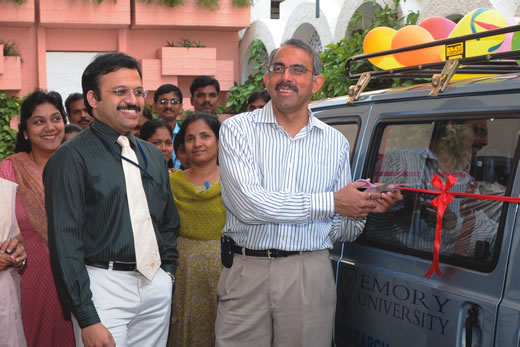Diabetes is a tremendous global health burden, but it is particularly daunting in India. Approximately 67 million men and women have diabetes, the second highest number of any nation in the world. Many develop the disease in their 30s and 40s, the most productive years of life.
Research about diabetes, however, occurs largely outside of India in high-income nations such as the U.S. What that research reveals may not translate directly to populations in low-resource settings. For example, recent studies to come out of the Emory Global Diabetes Research Center (EGDRC) showed that deficient insulin secretion may contribute more specifically to diabetes in Asian Indians.
"That suggests, in addition to modernization, there are factors related to the biology of diabetes in India that we don’t understand," says K.M. Venkat Narayan, the Ruth and O.C. Hubert Professor of Global Health and director of the EGDRC.
The solution lies in building a research base in India through training and collaboration. To date, the EGDRC has supported training for 25 U.S. researchers in India and 50 researchers from India and other countries at Rollins School of Public Health.
Earlier this year, the center joined forces to form an India-based Center for Control of Chronic Conditions. Partners include the Public Health Institute of India, the All India Institute of Medical Sciences, and the London School of Hygiene & Tropical Medicine. It will generate new research on diabetes, heart disease, cancer, mental health, and injuries by following more than 50,000 participants for multiple years throughout India and by completing trials of prevention and care improvement for these chronic conditions.
"Our agenda is so big," says Narayan. "Collaboration clearly is the way forward."

